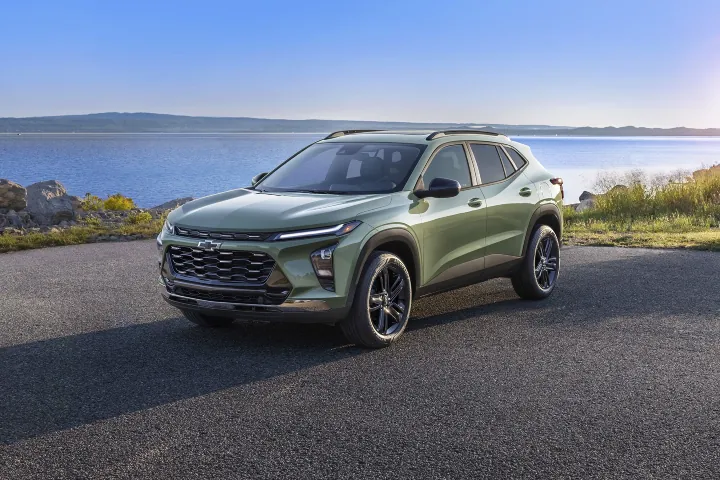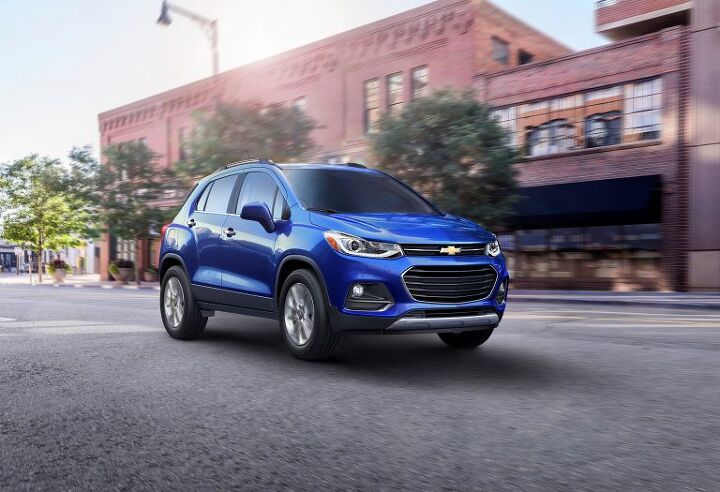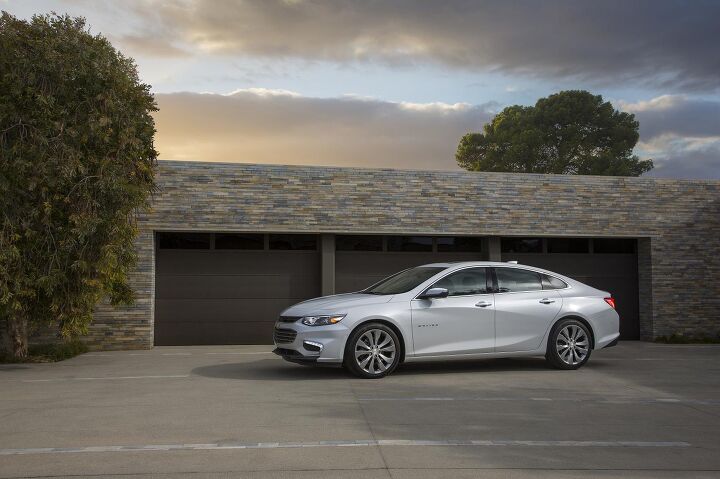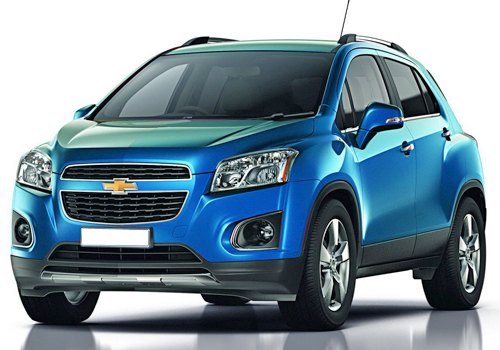#Trax
2024 Chevrolet Trax Activ Review – A Surprising Bargain
The Chevrolet Trax was once on my short list for worst vehicles on the market.
I remember some years ago, before joining TTAC, going to San Diego for the launch of the first-generation Trax. All I could think was that the little runabout was something to be avoided unless you just wanted cheap transport in crossover form.
GM Could Ditch Encore, Trax
While the market is awash with crossovers and SUVs, not all of them make the cut. According to the crew at GM Authority, General Motors is planning to axe the Buick Encore and Chevrolet Trax after the 2022 model year.
Buy/Drive/Burn: Affordable American Subcompact Crossovers in 2021
They’re small and space efficient because they’re hatchbacks, and they sell well because they’re called crossovers. Which small American CUV is worth buying with real money if you’ve got a $25,000 budget?
2020 Chevrolet Trailblazer and Tracker Prepare for Shanghai
General Motors plans on giving attendees of Auto Shanghai a crossover-themed enema later this month. Buick will introduce the second-generation Encore, as well as its larger GX variant, while Chevrolet focuses on the 2020 Trailblazer and Tracker.
While both models have vanished in the United States, replaced with the more tersely named Traverse and Trax, the Trailblazer and Tracker persist in Asia, Australia, and parts of South America. GM plans on debuting new editions of the pair in Shanghai on April 16th and has issued a teaser image (above) as a reminder — just like it did with the Encore.
Hyundai May Bring Subcompact Crossover, but It Won't Be Creta
Hyundai is looking to jump into the subcompact crossover fold in the States with the Nissan Juke, Honda HR-V, Chevrolet Trax and everyone else, but it won’t be with the Creta, Edmunds is reporting.
The Creta recently went on sale in India, but executives in America told Edmunds that it wasn’t the right fit for U.S. buyers.
“We have decided to wait a little bit longer to get the right vehicle,” said Dave Zuchowski, president and CEO of Hyundai Motor America.
Instead of Mid-engined 'Vette, Expect a New Malibu in 2016
Next year for General Motors could be defined by a new lower, longer Spark, production starting on the Bolt and a convertible Camaro, according to Automotive News’ facts and factoids department.
The automotive publication posted a speculative timeline of cars that may or may not be in GM’s future, including fuzzy details on a mid-engined Corvette that may or may not happen in or around the year 2020.
In case you’re wondering, we don’t know either.
Mazda Says 2016 CX-3 Will Start Under $20,000 (Kinda)
The new mini crossover from Mazda will start at $19,960 (not including $880 destination) when it goes on sale after next month, the automaker reported Thursday.
That puts the CX-3 in leagues with the Chevrolet Trax, Nissan Juke, Honda HR-V and Jeep Renegade as sub-$20,000 crossovers in an increasingly crowded and competitive segment.
Like the rest of its competition, it’s not hard to hike the CX-3’s final price up in a hurry.
Protectionism Hurts GM's Business
Attention pro-protectionists: Protectionism creates problems for one of your most favorite companies. GM wants to bring its new Chevrolet Trax SUVlet to Brazil, but Brazil is giving GM a hard time, says Reuters.























Recent Comments